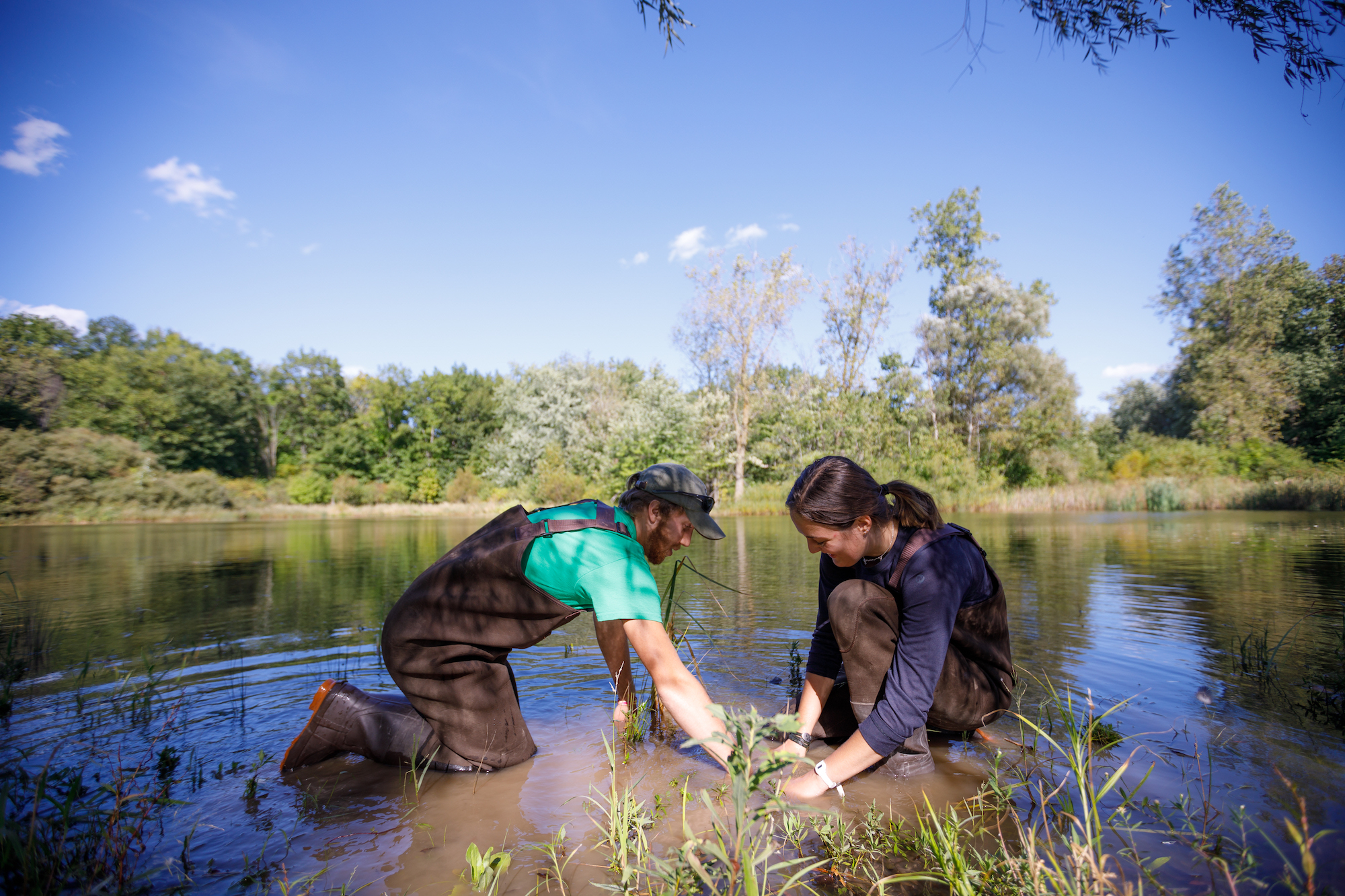The Calvin Ecosystem Preserve & Native Gardens preserves and restores 10 distinct natural community types as defined by the Michigan Natural Features Inventory.
We are are dedicated to protecting and caring for these natural communities through hands-on restoration (i.e. invasive plant removal, prescribed burning, native plant propagation, etc.), ecological monitoring, environmental education, and community engagement.
The Ecosystem Preserve, created on Calvin University’s campus in 1985, is composed of 104 acres and includes a diversity of habitats on a glaciated terrain, including mature deciduous forest, early successional forest, vernal pools, wetlands and constructed prairie and dune habitats. Of this land, 44 acres are open to the public and 60 acres (the Buiten Wildlife Sanctuary) is maintained as a wildlife reserve and research area to which visitor access is restricted.
Browse and click on the map below to learn more about the natural communities in the Ecosystem Preserve and Native Gardens.
You can also click on a link below to view a specific natural community.

Land Management Plan
Land management activities support all aspects of our mission. We give careful considerations to each habitat type (i.e. early successional forest, ephemeral ponds, kettle swamp, constructed prairie, etc.).
View our land management plan (pdf) for details of our care.
Land Management Practices
Our land management staff use a variety of best practices, including:
- Invasive Species Management: While early detection and rapid responses are crucial for keeping newly established invasive plant populations in check, it is important to use appropriate management strategies and timing when controlling more established invasive plants on preserve property.
- Prescribed Fire: Preserve staff manages prairie plantings with prescribed fires that are intentionally ignited under strict sets of weather and site conditions. The controlled burns help suppress encroaching shrubs and trees, reduce competition from invasive plants, and stimulate native plants by encouraging favorable growing conditions.
- Native Plant Propagation: Staff, students and volunteers collect seed from a variety of native plant species found on the preserves for the purpose of propagating and reintroducing additional native plants into degraded natural areas on the preserve properties. Some plants are also propagated for the annual native plant sale where proceeds benefit our education and stewardship efforts, and community members are able to incorporate some of the preserve’s beauty into their own gardens and landscapes.
For more information about land management policies, please contact our Director, Jamie Skillen.






